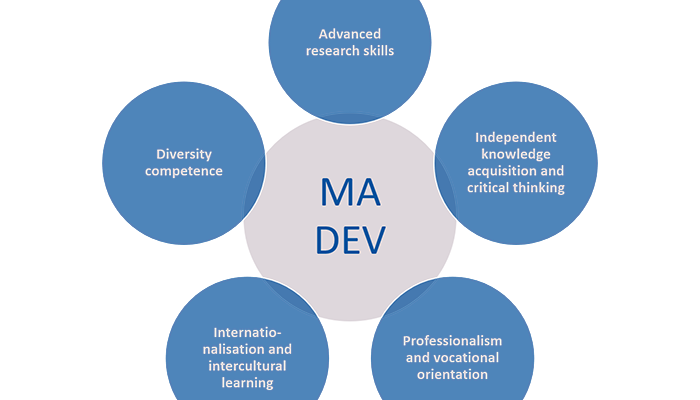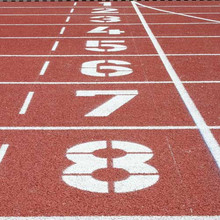M.A. International Sport Development and Politics
The Master Programme enables the graduates to link interdisciplinary content from politics, history, sociology, economics, law and sports.
The learning outcomes of the M.A. International Sport Development and Politics are reflected in the five categories: academic orientation, career orientation, international outlook, diversity and key competences.
- Advanced research skills: The course aims at teaching a wide range of approaches of different disciplines. Concepts of social sciences, economics and humanities are taught as an essential basis for further studies in the field of sport science. Based on the three dimensions polity (form), politics (process) and policy (content), the Master’s course conveys theory-based systematic and analytic approaches to political and social realities of sports, qualitative and quantitative methods of empirical social research and hermeneutic processes. During the first two semesters the acquisition of general knowledge in various (inter-)disciplinary approaches to sport development takes centre stage. The third and fourth semester target a specialisation of the acquired skills as well as their testing and application in current research and the professional world. The final goal is to make students able to integrate their newly acquired skills and perspectives to solve real-world problems both in the field and in academics.
- Independent knowledge acquisition and critical thinking: It is intended that students will be able to critically assess and reflect on current issues pertaining to sport development and politics. The utilization of different theoretical and methodological approaches takes centre stage to this target in order to inform well-founded arguments. A research-based approach to teaching and learning confronts students with the complexities of sport as a social and political phenomenon. The problem-solving capacities of students are fostered by numerous guest lectures held by academics and practitioners. Students’ inputs, debates and discussions are essential to achieve the aspired qualification target. The relevance of the Master’s thesis, accounting for the workload of one full semester, underlines the emphasis placed on this outcome.
- Professionalism and vocational orientation: Research and practical seminars are a core feature of the programme aiming to enable students to apply the theoretical background in national and international projects. Learning outcomes include the ability to become familiar with current developments in the sport sector quickly and to contribute to the theoretical and practical development of the area. The international course enables students to act competently in international projects and professions. Thus, graduates will have the opportunity to work in ambitious positions in sports clubs, associations, NGOs and in management as well as in the sports science area at universities or other research facilities. Students are encouraged to undertake internships over the course of the programme to apply their acquired skills in real life scenarios and to build networks for a successful transition into the job market. Frequent guest lectures and presentations by practitioners enrich the vocational orientation of the degree programme. The Master’s programme is also a great basis for doctoral studies.
- Internationalisation and intercultural learning: With a European and international approach, the Master’s programme is able to show the complex system of structures in sport that has developed in the last few decades. The programme conveys essential knowledge about sport systems, structures and development with examples from different countries across the globe. Learning outcomes in this context include achieving an understanding of the supranational European multi-level system as well as specific conditions for sport in the Americas, Asia and Africa. Special attention will be paid to transnational cooperation in sport. Furthermore, there will be exchanges and cooperation with international universities. Based on the diverse composition of students’ groups, the programme aims to foster intercultural learning through curricular and extra-curricular activities. Students’ inputs and a participatory approach to teaching mark a critical and important feature to achieve such outcomes.
- Diversity competence: Based on the German Sport University’s guiding principle of diversity, the productive integration of diversity will be another learning outcome of the Master’s programme. Diversity is to be understood from three perspectives. First, special attention is paid to a mix of German and international students in the course. Second, a wide range of subjects in the area of social sciences is taught. Third, to a great extent contents of the course will be dedicated to issues like gender, age, religion, sexual orientation and disabilities with regard to sport. Standards of humanities and social sciences will be applied through a critical and reflective approach that will be practiced in every lecture.

